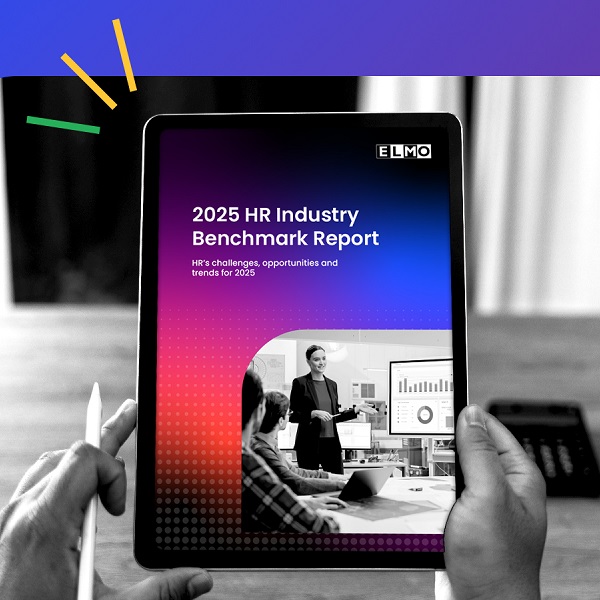
Businesses boost AI investment, but workforce upskilling remains a growing challenge: ELMO Software
As businesses ramp up investment in Artificial Intelligence (AI) technology, workforce transformation is becoming an urgent priority. New research by ELMO Software reveals 57% of HR professionals across Australia report an increase in AI-related budgets this year, up from 38% in 2024 – a clear indication that AI adoption is accelerating at pace.
The 2025 ELMO HR Industry Benchmark Report, which surveyed 900 HR professionals across Australia in January 2025, explores key workforce trends, including technology adoption, employee mobility, productivity, and HR challenges.
As AI reshapes job roles, businesses are facing mounting pressure to upskill, cross-skill, and reskill employees. 27% of HR professionals say workforce development will be their organisation’s number one challenge in the next 12 months, up from fourth place last year (when economic uncertainty and labour shortages were the dominant concerns).
“The rapid integration of AI is fundamentally reshaping job functions. To successfully work alongside AI, HR professionals must focus on retooling and retraining, fostering transparency and collaboration between technical and human-focused roles, and ensuring AI-driven decisions align with organisational values,” said Joseph Lyons, CEO of ELMO Software.
Confidence in AI Adoption is High
HR professionals are optimistic about AI’s role in the industry, with 83% believing AI will significantly impact HR in the next year, and 32% calling it ‘transformative’. This confidence is slightly lower in smaller organisations (77%), but still substantial. Meanwhile, 68% feel their HR department is “future-ready” for AI adoption.
“While enthusiasm for AI is evident, the challenge lies in translating this confidence into effective implementation. As organisations continue to explore AI’s full potential, ensuring the right strategies, skills, and infrastructure are in place will be critical to long-term success,” Lyons said.
In addition to AI technology (57%), the most common areas for increased budgets are learning & development (54%), and HR technology (52%), with HR professionals highlighting AI proficiency, predictive trend analysis, and financial literacy as the most important skills needed for the future.
Organisations Losing Hundreds of Thousands Yearly to People Challenges
While businesses are focused on upskilling and retraining, employee turnover remains a consistent focus. More than a third (35%) of HR professionals estimate an annual turnover rate of 6-10% in 2025, while 28% believe it could be as high as 11-20%. Retention during probation is also a challenge, with 34% estimating that 6-10% of new hires leave before completing this period.
With junior roles typically taking two weeks to fill and an average hiring cost of $13,870.32, a mid-sized organisation with 150 employees and a 10% turnover rate faces an annual hiring expense of approximately $208,000. To manage these costs effectively, businesses must strike a balance between hiring efficiency and long-term retention strategies.
“HR professionals are under increasing pressure to not only hire the right talent but also ensure they stay and grow with the organisation,” said Lyons. “AI already helps to streamline hiring and training processes, but without a strong focus on engagement and retention, businesses will struggle to reap the full benefits.”
Employee engagement remains the top driver of retention (38%), followed by work-life balance (30%) and effective leadership (29%).
“Those who successfully integrate AI while developing a skilled, engaged, and adaptable workforce will be best positioned for success in an evolving workplace,” Lyons said.
The HR Tech Gap: Why Most Businesses Still Struggle with Fragmented Systems
Many organisations still rely on fragmented systems to manage employee data, making it harder to achieve true data-driven HR. In smaller businesses (21-49 employees), 58% use stand-alone payroll systems, compared to 28-40% in mid-to-large organisations. Only 30% of Australian businesses have adopted an integrated HRIS platform – missing out on some of the efficiency, productivity, and engagement benefits that come with it.
“At ELMO, our purpose is to empower HR leaders with all-in-one technology that streamlines processes and enables smarter decision-making,” said Lyons. “By embracing responsible innovation – whether through AI-powered automation, real-time data insights, or secure and compliant systems – organisations can future-proof their workforce and shape a more strategic approach to HR.”

